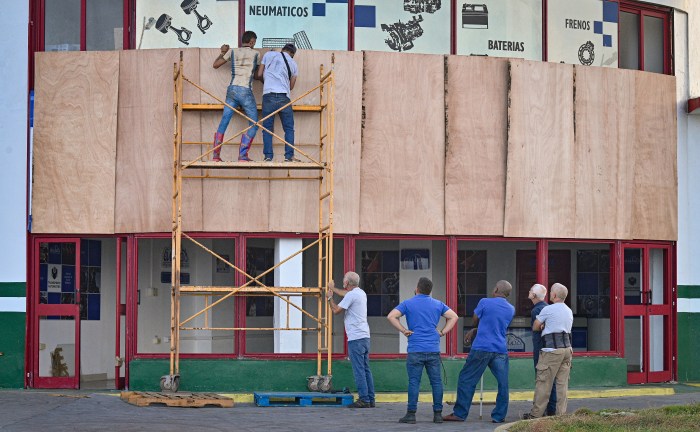Though Cuba and the United States have made much progress in improving bilateral relations, Cuba’s Foreign Affairs Minister Bruno Eduardo Rodríguez Parrilla says the decades-old economic blockade against Havana hampers progress in the normalization of relations between both countries.
In addressing the 71st Session of the United Nations General Assembly Debate on Thursday, Rodríguez Parrilla said “there is still a long way ahead in order to move towards the normalization of relations.”
He particularly noted progress in diplomatic relations, dialogue and cooperation in areas of mutual interest, as evidenced by the high-level visits that have taken place, including by U.S. President Barack Obama.
But he lamented that “the blockade is still in force; it continues to cause serious damages and hardships to the Cuban people; and continues to hinder the functioning of our economy and its relations with other countries.”
“The executive measures adopted by the U.S. government, although positive, are still insufficient,” Rodríguez Parrilla said.
Moreover, he said the recent examples of the economic and financial damages caused by the blockade to Cuba and third countries are numerous.
“As long as this continues to happen, we will continue to present to this assembly the draft resolution entitled ‘Necessity of ending the economic, commercial and financial embargo imposed by the United States of America against Cuba,’” he said.
He reiterated the Cuban government’s willingness to continue developing “a respectful dialogue” with the U.S. government, knowing that there is still a long way ahead in order to move towards the normalization of relations.
“[This] means building a new model of bilateral relations in our common history, which could never be forgotten,” Rodríguez Parrilla said. “For this to be possible someday, it will be indispensable that the blockade is lifted.
“The territory illegally occupied by the U.S. naval base in Guantanamo against Cuba’s will, must be returned to our country,” he added.
In turning to wider development issues, the Cuba foreign affairs minister said: “The gap between our deliberations and peoples’ realities persists.
“The lack of political will of industrialized states becomes evident,” he said. “The irrational patterns of consumption and production of capitalism, which lead to the destruction of the living conditions in the planet, are replicated.”
Rodríguez Parrilla said the huge nuclear and conventional stockpiles and the annual military budget of US$1.7 trillion “give lie to those who affirm that there are no resources to eradicate poverty and underdevelopment.
“However, there are many arguments that justify the urgency of building a new international financial architecture,” he stressed.
Against such a backdrop, he said the United Nations must be defended from unilateralism, calling at the same time, for the United Nation’s reform into a “more democratic organization that is closer to the problems, needs and aspirations of peoples; capable of leading the international system towards peace, sustainable development and the respect of all human rights for all.”
He also called for, among others, reform of the United Nations Security Council, both in terms of its composition and working methods – “a task that should not be put off any longer.”
Rodríguez Parrilla said the strengthening of the United Nations General Assembly and the “restoration of the functions that were usurped by the Council should guide the search for a more democratic and efficient organization,” according to the United Nations.























